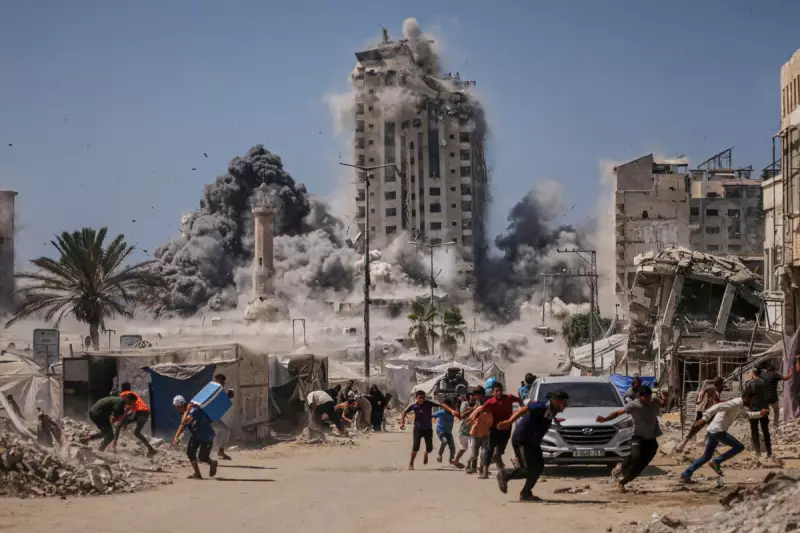
Sir Keir Starmer is confronting one of his most significant internal challenges as Labour leader, with senior party figures publicly demanding he acknowledge Israel's military campaign in Gaza as meeting the legal definition of genocide.
Mounting Pressure From Within
The Labour leadership faces intensifying pressure after numerous shadow ministers and MPs broke ranks to support an immediate ceasefire and formally recognise the situation in Gaza as genocidal. This rebellion represents the most substantial internal crisis Starmer has encountered since taking charge of the party.
According to sources within Westminster, the situation has become so severe that some frontbenchers are reportedly considering their positions if the leadership fails to shift its stance. The depth of feeling among Labour MPs reflects growing constituency pressure and moral outrage over the humanitarian catastrophe unfolding in Gaza.
Legal Definitions and Political Realities
The controversy centres on whether Israel's military operations, which have resulted in over 34,000 Palestinian deaths according to Gaza health authorities, constitute genocide under international law. While the International Court of Justice has indicated the possibility of genocide occurring, it has stopped short of making a definitive ruling.
This legal grey area has created a political minefield for Starmer, who must balance maintaining the UK's traditional alliance with Israel against growing public and parliamentary sentiment that Britain's stance enables mass civilian casualties.
Historical Parallels and Contemporary Concerns
Some Labour MPs have drawn comparisons to historical genocides, arguing the international community is repeating past failures to prevent mass atrocities. This framing has elevated the debate beyond typical foreign policy disagreements into questions of fundamental moral responsibility.
The internal Labour document obtained by The Independent reveals the careful diplomatic language being used internally, acknowledging "serious concerns" about potential genocide while stopping short of the formal classification demanded by rebel MPs.
Broader Political Implications
This crisis extends beyond Labour's internal dynamics, potentially affecting the UK's international positioning and Starmer's credibility as a potential prime minister. The government has watched developments carefully, recognising that Labour's difficulties could become their opportunity if the rebellion escalates further.
With local elections approaching and significant Muslim populations in many Labour-held constituencies, the political stakes extend far beyond Westminster briefing rooms. Several MPs have reported unprecedented levels of constituent concern about Gaza, making this both a moral and electoral imperative.
The Road Ahead
As the death toll in Gaza continues to rise, pressure on Starmer to change course is likely to intensify. The Labour leader finds himself caught between maintaining consistent foreign policy and responding to the moral outrage within his own party and the country at large.
How this crisis resolves could define Starmer's leadership and potentially reshape UK policy toward the Israeli-Palestinian conflict for years to come. With both sides digging in their positions, a swift resolution appears increasingly unlikely.





